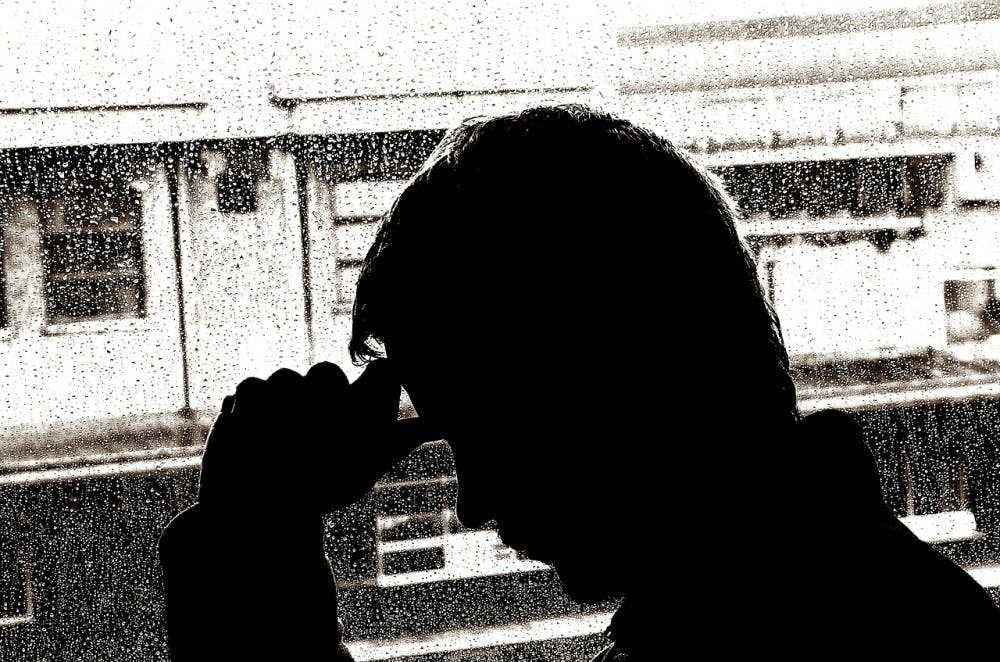Jacob Fuhrer |
Jasmyn, a sophomore at UP, grew up with a love for music. A pianist, violinist, guitar player and singer, she has always loved music.
When her parents fought at home, it was music that she played through headphones to drown out the drama and protect her sister from hearing a fight unfold.
Jasmyn grew up feeling alone, unable to find friends in large schools. The pressure to find friends in addition to a problematic home life took a toll on her mental health.
“A lot of the times it ends up building up,” she said. “I used to have panic attacks a lot and end up in my closet crying.”
When Jasmyn left for college, the problems only intensified. Away from her family and from her sister whom she grew very close to, she looked for an escape.
The drama of freshmen year took over, and one night during her second semester, Jasmyn tried to take her own life.
She is one of an increasing number of college students who reported feeling depressed during the past year.
A study from the University of California, Los Angeles looked at 150,000 college freshmen nationwide and found that 9.5 percent of those surveyed report frequently feeling depressed, up more than three percent from five years ago.
It’s a problem that Will Meek, assistant director of counseling at the Health Center, wants to help solve.
“We had lots of freshman right at the beginning of school coming in,” Meek said.
Meek said it’s normal for new college students to feel overwhelmed during their first year, but something else could explain the greater trend.
Inexperience in dealing with the everyday problems of life could be a source of depression. Meek points to the broader cultural phenomenon of parents sheltering their children from the hardships of life, such as a breakup with a significant other.
“They end up being overwhelmed by stress,” Meek said.
The result could be greater feelings of anxiety or depression. Meek says recently, more students have been coming in for help with anxiety than in years past.
The UCLA study agrees.
“With counseling centers on campus reporting a record number of visits and increased wait times (Misner, 2014), it is clear that campuses have more work to do to assist students experiencing emotional health issues,” the report said.
What’s more, academic pressures can weigh in on students’ stress levels. Kelly Carder, assistant director at the Freshman Resource Center, says it comes down to resilience.
“Something you have to learn is resilience and being able to struggle through difficult things whether its academics or a personal issue,” Carder said.
Carder says it’s common for students to come into her office overwhelmed by school.
“A lot of times, it's feeling like they don’t know how to keep up with the work,” Carder said.
Carder tries to tease out exactly where the problem is and helps students develop a plan to get organized. She remains optimistic that students might just need better time management and organization to reduce their stress levels.
On the bright side, Meek says students are generally feeling more comfortable opening up to counselors about their concerns as the stigma of speaking about mental health issues declines.
Carder also says she refers students to get help from the Health Center in extreme cases.
The Health Center has three full-time psychologists and three part-time resident counselors. In addition to counseling, health staff can prescribe medication or provide referrals to other medical professionals for more serious cases.
Meek says medication is usually an option used in combination with counseling for students who need immediate relief. Referrals to outside counseling is reserved for rare instances when students may require more attention or face other struggles like substance abuse.
Recently, Meek partnered with Campus Ministry to introduce a program for mindfulness-based stress relief. It’s a dedicated time for students to reflect and think about their lives. The initial reviews look positive.
“It sounded like it was very helpful and opened [students’] eyes to see their lives in a different way,” Meek said.
Students are welcome to take part in the mindfulness sessions on Fridays at 3 p.m. in the Chapel of Christ the Teacher.
In addition to talking with friends and family, Jasmyn went to the Health Center freshmen year for help with her depression and recalled a positive experience. She says she is doing much better now.
“Try to reach out,” Jasmyn said. “Nothing’s going to get better if you don’t try.”
Editor's note: The Beacon has chosen not to use Jasmyn’s last name out of concern for her privacy.
Jacob Fuhrer is a reporter for The Beacon. He can be reached at fuhrer17@up.edu or on twitter @jacobfuhrer.








